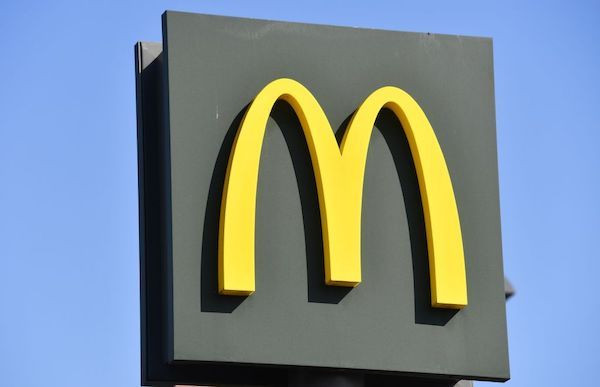What McDonald’s Wants Investors to Know

It pays to have a global presence in the fast-food business. McDonald's (NYSE:MCD) 2018 was marked by big challenges in the U.S. market, where customer traffic turned negative and overall growth slowed, but the chain still reported strong worldwide sales, as each of its other geographies enjoyed healthy traffic growth.
The gains in these areas provided plenty of funds for management to direct toward supporting a rebound in the U.S., which McDonald's is hoping could happen as soon as this year. CEO Steven Easterbrook and his executive team went over some reasons for that optimism in a conference call with analysts, and below we'll look at a few key quotes from that interaction.
Big-picture wins
Our top-line performance and broad-based strength is a significant achievement given the muted informal eating out environment in most of our major markets.
-- CFO Kevin Ozan
For the year, McDonald's logged 4.5% growth at existing locations to mark a slowdown from the prior year's 5.3% boost. Still, every region increased comps and customer traffic ticked up on a global basis, although the rate of increase slowed to just 0.2% from 1.9% in 2017. Given weak industry conditions in many areas – especially the U.S. -- those results still translated into market share gains. They also ensured two years of back-to-back growth for the chain for the first time since 2012.
Tough conditions at home
The [quick-service restaurant] environment in the U.S. proved challenging with aggressive promotional activity throughout the industry. Despite this, we achieved a positive comp sales gap of 100 basis points for the full year versus our [quick-service restaurant] sandwich competitors.
-- Ozan
McDonald's customer traffic trends significantly worsened in the U.S. last year, falling 2.2% compared to a 1% increase in 2017. Management credited its mix of value-based and premium meal offerings for keeping average spending rising to more than offset that decline. Successes there combined with rising customer satisfaction with the food quality and the dining experience to deliver modest market share growth in a tough selling environment.
A financial powerhouse
Free cash flow was $4.2 billion, an increase of 14% over 2017. Our full-year restaurant margin dollars grew by over $100 million in constant currencies. And excluding current-year and prior-year special items, our 2018 operating margin was 43%, up over 4 percentage points from the prior year.
-- Ozan
With commodity prices rising and growth slow in many areas, 2018 was a tough profit year for most restaurant chains. But McDonald's stood out from rivals in this regard, as higher menu prices and increased spending combined with its refranchising initiative to produce a strong earnings spike. Cash flow, operating profit margin, and net income all expanded nicely for the year.
Doubling down on spending
Barely two full years into executing the Velocity Growth Plan, our strategy remains focused on recapturing guest count momentum and regaining customer visits.
-- Easterbrook
McDonald's spent close to $2 billion modernizing and upgrading 4,500 of its U.S. restaurants last year in a bid to get this segment more in line with the growth wins executives have seen in areas like Italy, France, Canada, and China. That marked the chain's most aggressive real estate investment initiative to date.
Investors haven't yet seen the strategy deliver obvious benefits, but management is still convinced that it's the single best way they can lay the groundwork for faster growth. That's why they're planning to spend another $1 billion in 2019 outfitting 2,000 more U.S. restaurants with things like self-order kiosks, digital menus, and delivery functionality.
These upgrades should pay off by boosting customer satisfaction and leading to more repeat visits and higher spending. Investors will know whether they're working by watching to see if customer traffic trends climb back into positive territory -- or at least stabilize -- in 2019.
This article originally appeared in the Motley Fool.
Demitrios Kalogeropoulos owns shares of McDonald's. The Motley Fool has no position in any of the stocks mentioned. The Motley Fool has a disclosure policy.





















